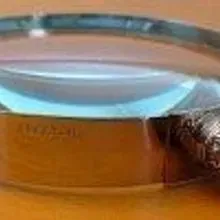 FLICKR, JOHN LESTERA RIKEN scientist investigating allegations of misconduct tied to Haruko Obokata and her colleagues’ stimulus-triggered acquisition of pluripotency (STAP) work has resigned from his post on the committee amidst alleged problems with his own published research, the Nature News blog reported. In a statement, molecular biologist Shunsuke Ishii from the RIKEN Advanced Science Institute said he chose to step down from the STAP misconduct investigation committee because of anonymous comments expressing doubt about data in two of his lab’s papers. In his statement, Ishii “deeply apologize[d]” for the inconvenience caused.
FLICKR, JOHN LESTERA RIKEN scientist investigating allegations of misconduct tied to Haruko Obokata and her colleagues’ stimulus-triggered acquisition of pluripotency (STAP) work has resigned from his post on the committee amidst alleged problems with his own published research, the Nature News blog reported. In a statement, molecular biologist Shunsuke Ishii from the RIKEN Advanced Science Institute said he chose to step down from the STAP misconduct investigation committee because of anonymous comments expressing doubt about data in two of his lab’s papers. In his statement, Ishii “deeply apologize[d]” for the inconvenience caused.
Earlier this month (April 1), the RIKEN committee reported evidence of data falsification and fabrication in the STAP papers. While a separate committee is working to determine whether the publications should be retracted and how Obokata might be disciplined for her alleged misconduct, the stem-cell researcher has stood by her results. “At this stage, considering the STAP cell discovery itself to be fabricated is a misunderstanding; I cannot possibly accept this,” Obokata said in an April 1 statement.
Now, Nature reported, Obokata’s lawyer said that questions about the validity of Ishii’s work are reason for a reinvestigation of the initial RIKEN report on STAP. Meanwhile, RIKEN will investigate claims related to Ishii’s research.













